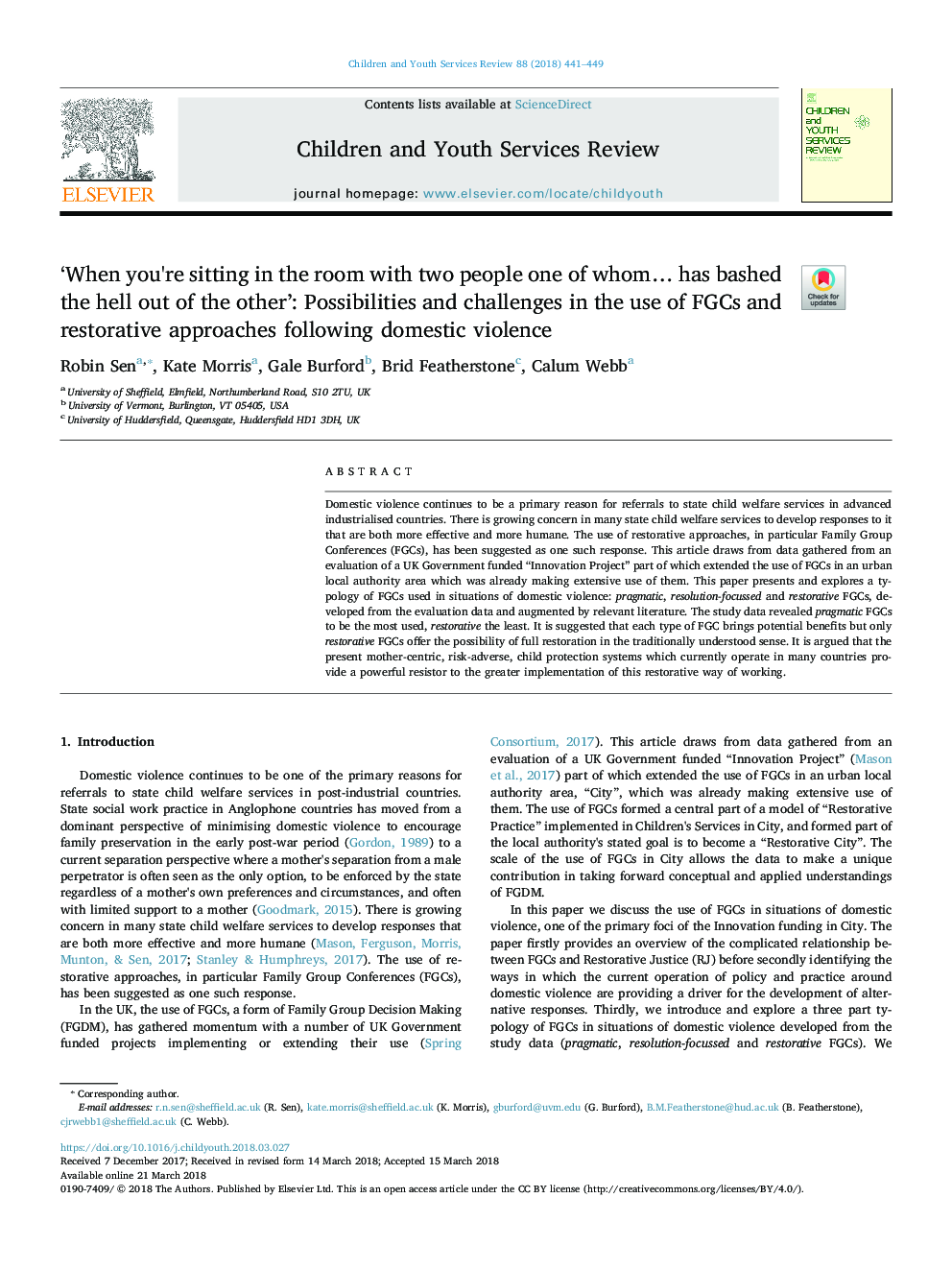| Article ID | Journal | Published Year | Pages | File Type |
|---|---|---|---|---|
| 6833231 | Children and Youth Services Review | 2018 | 9 Pages |
Abstract
Domestic violence continues to be a primary reason for referrals to state child welfare services in advanced industrialised countries. There is growing concern in many state child welfare services to develop responses to it that are both more effective and more humane. The use of restorative approaches, in particular Family Group Conferences (FGCs), has been suggested as one such response. This article draws from data gathered from an evaluation of a UK Government funded “Innovation Project” part of which extended the use of FGCs in an urban local authority area which was already making extensive use of them. This paper presents and explores a typology of FGCs used in situations of domestic violence: pragmatic, resolution-focussed and restorative FGCs, developed from the evaluation data and augmented by relevant literature. The study data revealed pragmatic FGCs to be the most used, restorative the least. It is suggested that each type of FGC brings potential benefits but only restorative FGCs offer the possibility of full restoration in the traditionally understood sense. It is argued that the present mother-centric, risk-adverse, child protection systems which currently operate in many countries provide a powerful resistor to the greater implementation of this restorative way of working.
Related Topics
Health Sciences
Medicine and Dentistry
Perinatology, Pediatrics and Child Health
Authors
Robin Sen, Kate Morris, Gale Burford, Brid Featherstone, Calum Webb,
